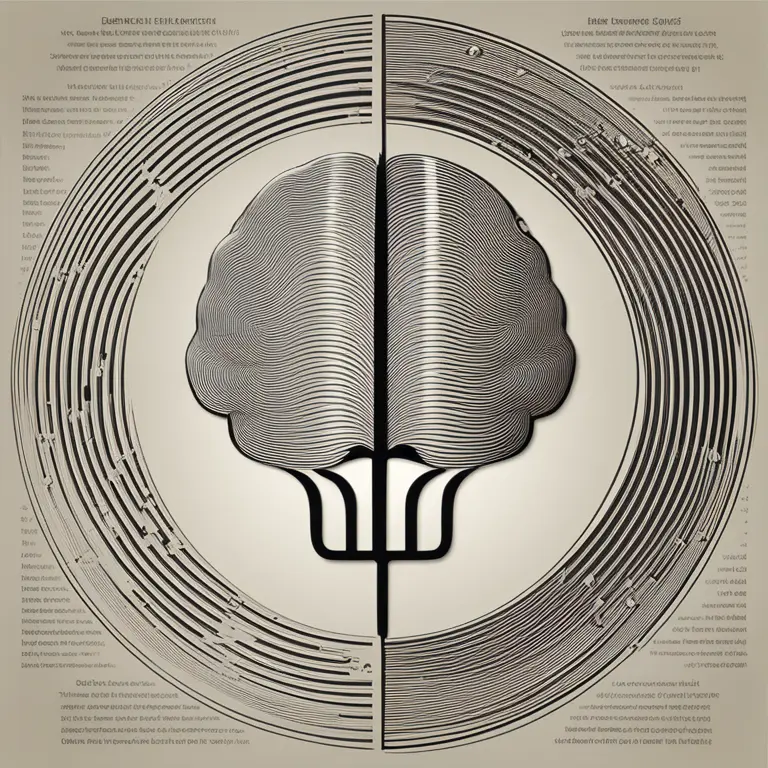
The Rhythms of Life: An Insight into Biorhythmic Cycles
Delve into the concept of biorhythms to understand the invisible waves that may influence your physical, emotional, and intellectual states through time.
article by Adrian Wallace
Introduction to Biorhythms
In the intricate dance of life, our well-being is often thought to be influenced by an interplay of various rhythmic cycles. Biorhythms, a concept hailing from the early 20th century, propose that our daily lives are affected by innate biological cycles. These rhythms are believed to govern the physical, emotional, and intellectual faculties, ebbing and flowing in predictable patterns. The theory of biorhythms suggests that by understanding these cycles, one can anticipate periods of strength and weakness, aiming to harmonize activities with our biological tides.

Physical Cycle: The Strength Wave
The 23-day physical cycle is said to influence our vitality and energy levels. In the realm of biorhythms, it's during the first half of this cycle—termed the positive phase—that one might feel at peak physical condition, assertive, and ready to tackle demanding tasks. As the cycle wanes, entering the negative phase, it's thought that the body may require more rest and be more prone to physical challenges. For those planning strenuous activities in 2024 and beyond, aligning them with the upswing of the physical cycle could possibly lead to enhanced performance.

Emotional Cycle: The Sensitivity Crest
The emotional biorhythm, spanning a 28-day cycle, mirrors the moon's journey and is closely linked to our mood and creativity. Starting the cycle at a high might find you riding a wave of optimism, where emotions are stable and interpersonal relations flourish. As the cycle descends, it's theorized that one might experience heightened emotional sensitivity or mood swings. During such times, activities that require emotional stability or critical social interactions might better be scheduled during the ascending phase of the next cycle.

Intellectual Cycle: The Mentality Swing
Over the course of 33 days, the intellectual cycle completes its rotation, influencing cognitive functions, decision-making, and analytical abilities. During the positive phase of this biorhythmic wave, it is postulated that intellectual endeavors may unfold with ease as mental clarity peaks. On the contrary, during the negative phase, it may be advisable to refrain from activities requiring intensive intellectual effort or making critical decisions, as one's mental faculties could theoretically be less sharp.

Calculating Your Biorhythms
As astrology turns to the stars, biorhythm calculation looks at the mathematics of life. For those curious about how these cycles might be currently affecting them, numerous online calculators and apps now exist, requiring just your birth date to map your biorhythmic status for 2024 and beyond. While the precision of such predictions remains a subject of debate, these tools offer a personalized glimpse into the potential highs and lows in accordance with the biorhythmic theory.
Leveraging Biorhythmic Knowledge
Whether you're a skeptic or a believer, applying biorhythmic principles might add an introspective dimension to personal planning. Aligning critical tasks with potential high points in your cycles or understanding possible down times may serve as a useful guide. Even though the scientific community remains divided on the empirical validity of biorhythms, some individuals find value in this cyclical perspective, using it as a holistic system to manage their health, relationships, and productivity.
Published: 1/30/2024
Modified: 1/30/2024
More predictions
Come back here soon to learn more about yourself and your future


The Rhythms Within: Mastering Biorhythm Readings
Discover how biorhythm readings provide insights into your physical, emotional, and intellectual cycles, helping you to align with your natural rhythms for improved well-being.


The Rhythms of Life: Delving into Human Biorhythms
Discover the fascinating world of human biorhythms and how they influence our daily lives, health, and well-being.


The Rhythms of You: A Guide to Biorhythm Theory
Discover the foundations of biorhythm theory and how it purports to map the cycles of physical, emotional, and intellectual energy in our lives.